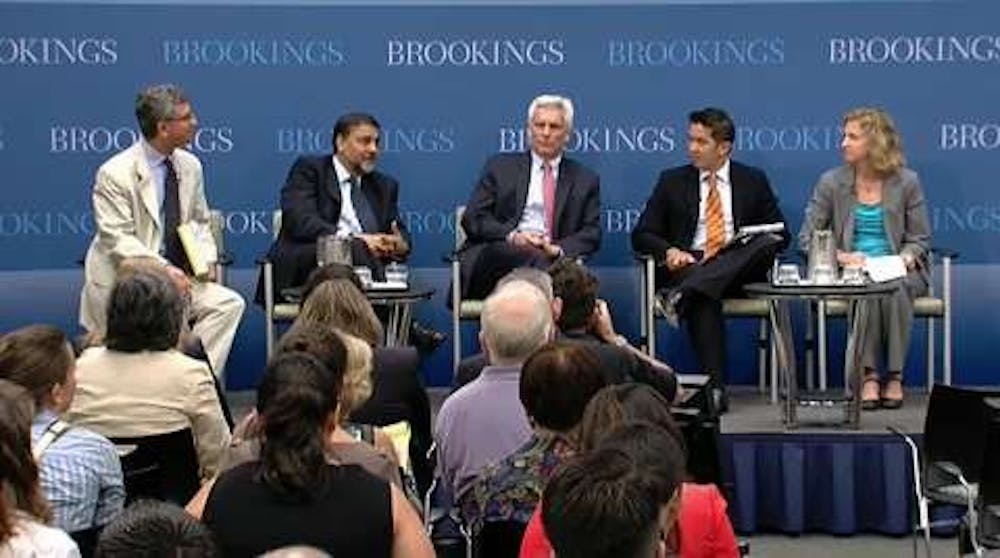Kristen Olsen Interning with the Center for Immigration Studies in Washington, D.C. Class of 2013; current news senior reporter for The Pendulum
As an intern in D.C., you have the opportunity to go to a lot of events around the city. For my internship at the Center for Immigration Studies, an immigration research center based around the corner from the White House, I was sent to a presentation and debate about the H-1B visa. What is the H-1B visa you ask? I had the same question myself before going to the presentation on July 18.
The H-1B is a visa program aimed at finding and employing highly skilled workers from abroad in the United States. But the controversy surrounding this visa is that companies can only employ these international workers if there is no one in the United States that is qualified enough for the position. And those immigrants are forced to remain in that employment position if they wish to stay in the country. The primary fields that use this H-1B program is computer science and stem research.
It was estimated that over the past year, 90,000 companies requested H-1B workers, 90 percent of those being private firms and businesses. With this visa, as well as other visa for immigrants, there is a lot of concern that the country is outsourcing its jobs and limiting America’s prospects.
After the presentation, there was a debate between Jared Bernstein, a Senior Fellow at the Center on Budget and Policy Priorities, and Vivek Wadhwa, an Indian national and vice president at Singularity University. They both argued the fact that there needs to be changes to immigration laws that would allow both high and low skilled workers to immigrate to the country, and better visa programs overall. Wadhwa understood the hardships of immigrating to the US with these visa programs, and said he believes they need to be changed to allow foreigners to be able to change jobs or start their own businesses in the US.
I found this presentation and debate to be very interesting and informative. Before I began interning here this summer, I really didn’t know much about immigration policies in the US, or anywhere else in the world. Coming from Elon University, which prides itself on pushing us to be more global citizens, I have my own aspirations to live and work abroad, so this was particularly of interest to me to see just how competitive and hard it actually can be to immigrate to another country.
This was an eye opening experience, because I assumed getting the right paperwork and visas was not difficult, since there are so many foreigners and immigrants living here. In my perfect world, immigrating would be as easy as simply applying for jobs and buying a plane ticket, but now this has shown me how competitive it actually can be. While my aspirations have not changed, it definitely has made me realize that it may not be as simple as I hoped.
[box] Want to share a reflection from your summer internship? Email a post and photo to Pendulum@elon.edu and we’ll add you to our blog! [/box]


